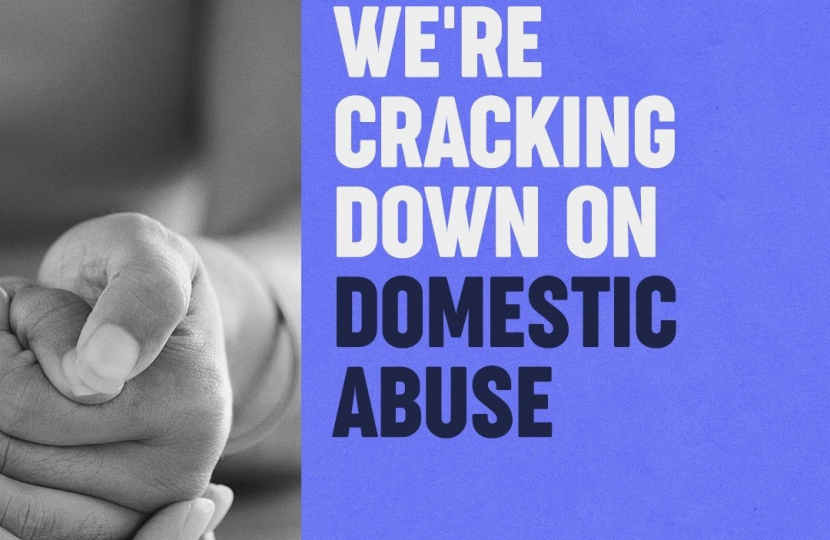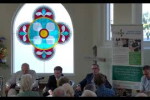
Domestic abusers face crackdown in raft of new measures
Tackling violence against women and girls (VAWG) remains one of the government’s top priorities and we are doing everything possible to make our streets safer for women and girls. Through our tackling VAWG strategy, we are prioritising prevention, supporting survivors, and strengthening the pursuit of perpetrators.
Domestic abusers will face tags and tougher management under new measures to protect women and girls, with new proposals going further than ever before in protecting women and girls.
The law will be changed so that the most dangerous domestic abusers will be watched more closely. For the first time, controlling or coercive behaviour will be put on a par with physical violence, which will mean offenders sentenced to a year or more imprisonment or a suspended sentence will automatically be actively managed by the police, prison and probation services under multi-agency public protection arrangements. A range of agencies will have a legal duty to cooperate to manage the risks posed by these dangerous offenders. This will make it easier to deliver a joined-up approach to protect the public, with work starting immediately.
In addition, abusers could be fitted with a tag, prevented from going within a certain distance of a victim’s home, and made to attend a behaviour change programme, as part of a trial of domestic abuse protection notices and domestic abuse protection orders in three areas in the UK.
Also from the 20th of February, those at risk of, or suffering from, domestic abuse will be able to receive emergency help from one of 18 jobcentres and jobs and benefit offices across the UK, and a new postcode checker will tell them their nearest location to access the service.
The Ask for ANI (Action Needed Immediately) scheme is already in operation in over 5,000 pharmacies across the UK in over 88 cities, towns and villages. It is delivered in partnership with Hestia’s Safe Spaces. Anyone who is suffering from or fearful of domestic abuse can ask for ANI, and they will be guided to a safe and private space and offered support to call the police or specialist domestic abuse services.
Since the scheme launched in 2021, the emergency support has been accessed on average once a week.
Prime Minister Rishi Sunak said:
No woman or girl should ever have to feel unsafe in her home or community and I am determined to stamp out these appalling crimes.
The Ask for Ani scheme provides a lifeline for anyone suffering from domestic abuse and we will continue to expand the scheme so that more people can access it, including piloting this service in the first jobcentres.
As well as extra support for victims, we’re making it a priority for the police to tackle violence against women and girls and toughening up the way offenders are managed – preventing more of these crimes from happening in the first place, and bringing more perpetrators to justice.
Government will also require police forces to treat violence against women and girls as a national threat, as set out in a new strategic policing requirement published today. This means tackling these crimes will be as important as tackling threats like terrorism, serious and organised crime and child sexual abuse. To support this, the Home Office will help develop a new risk assessment tool so that police forces can quickly identify domestic abusers most likely to commit the greatest harm – even where they have no conviction – and stop them in their tracks.
The full set of measures being set out today include:
1. Tougher management of the most dangerous offenders
2. Piloting new civil orders
3. Ask for ANI codeword scheme pilot
4. Adding violence against women and girls to the strategic policing requirement
5. Identifying dangerous perpetrators before conviction
6. Strengthening Clare’s Law
7. Funding specialist victim support programmes: Up to £8.4 million will be allocated over two years to fund projects run by specialist organisations to provide tailored, trauma-informed support from 1 April 2023.
8. Investing in perpetrator interventions
In April 2021, the landmark Domestic Abuse Act updated the definition of domestic abuse, recognising it refers to a range of abusive behaviour – physical, sexual, violent or threatening, psychological, emotional and coercive or controlling acts are now recognised as criminal abuse.
For the first time, the Act recognised children as victims, and economic abuse as a form of domestic abuse.
This includes measures in the Online Safety Bill to strengthen the law around the sending and sharing of intimate images without consent, and committing to introduce a package of new offences when Parliamentary time allows that tackle the taking and sharing of these vile images – which will include downblousing.
The government is also supporting the Protection from Sex Based Harassment in Public Bill, which introduces harsher sentences if someone who deliberately harasses, alarms, or distresses someone in a public place does so because of the victim’s sex, with the maximum sentence increasing from six months to two years.
National Police Chiefs’ Council Lead for Domestic Abuse, Assistant Commissioner Louisa Rolfe, said:
Policing is committed to protecting victims of domestic abuse and bringing perpetrators to justice. We welcome the raft of measures aimed at tackling domestic abuse in many forms.
Adding violence against women and girls to the strategic policing requirement, puts it on the same level of priority at terrorism and child abuse, where we believe it belongs. All forces are already prioritising VAWG and we welcome this prioritisation from the government.
Domestic abuse is a complex and entrenched societal problem and requires a multi-agency approach. Providing support for victims and their families and to introduce effective and sustainable solutions for perpetrators is vital.
We will work together with the Home Office to ensure the measures announced today can aid policing and the criminal justice system in their fight to tackle domestic abuse.
Today’s announcements sit alongside wider work the government is doing to tackle domestic abuse. Since the publication of the tackling domestic abuse plan the government has:
- doubled funding for the National Domestic Abuse Helpline, which sees on average 15,000 users every three months, and an uplift for all other national tackling VAWG helplines, to a combined total of over £2 million a year
- launched a new communications campaign, ‘Enough’ to change societal attitudes towards domestic abuse and violence against women and girls, taking long term actions to prevent violence and encourage bystander intervention.
- committed over £79 million since 2020 for domestic abuse perpetrator interventions and research which includes up to £36 million over the next two years for interventions which is the first time we are providing multi-year funding to tackle perpetrators
- introduced new measures in our Police, Crime, Sentencing and Courts Act, which will give victims of domestic abuse longer to report offences to the police so that abusers cannot evade justice
- as part of quadrupling funding for victim and witness support services by 2024/25, up from £41m in 2009/10, we have also committed increase the number of independent sexual and domestic abuse advisors by 300 to over 1,000 – a 43% increase over the next three years

